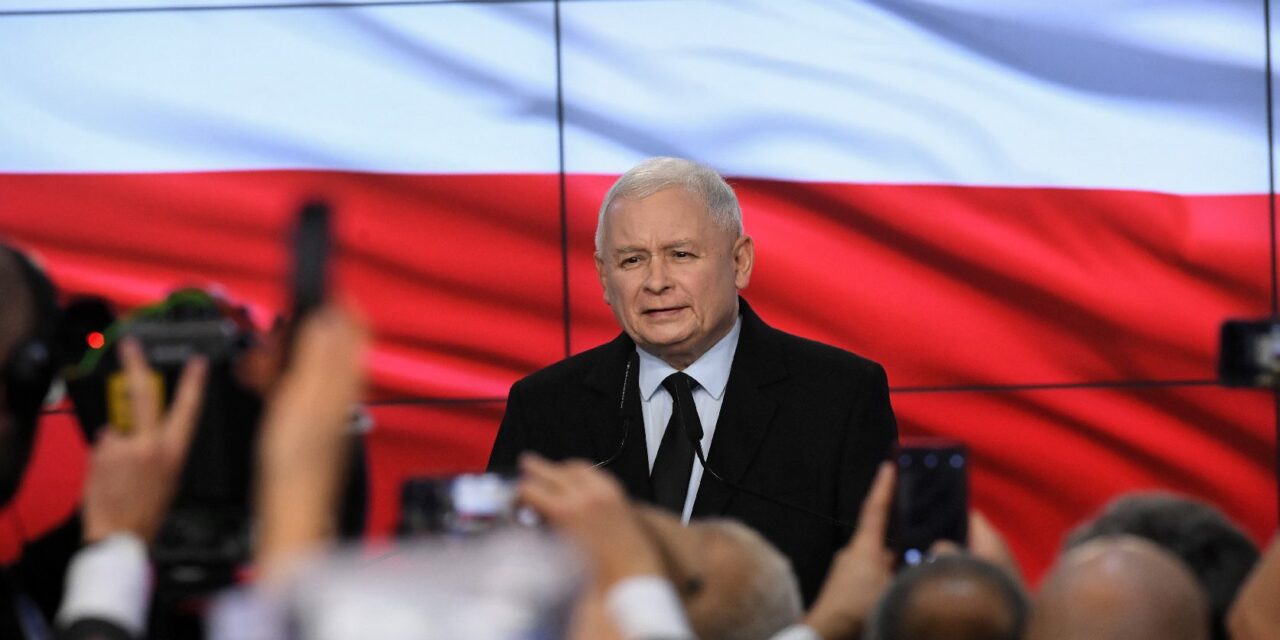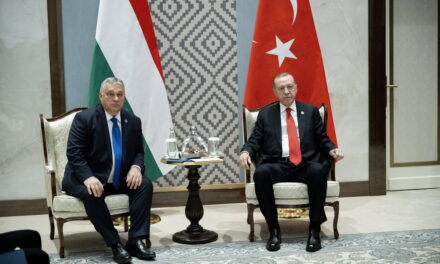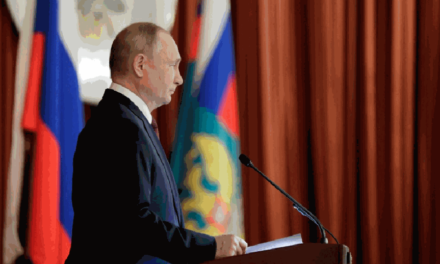Where European Tusk's fans laugh and national Kaczyński's cry, where vice versa - it will be clear on Sunday who can celebrate in Poland this time.
"The lanky blue-eyed man with the sympathetic Sonnyboy smile is a friend of the Germans and openly admits: 'I am pro-German.'" These joyful lines were written by the German Bild in 2007, rejoicing at the victory of Donald Tusk, who "speaks German and English fluently", which won over Jarosław Kaczyński, who reigned between 2005-2007. If the Kaczyńskis are elected this Sunday for a third term, which is unprecedented in the history of Polish democracy, they will say the same sentences with loud laughter - we beat the German's man!
And this show has been going on in Polish politics since 2005: where European Tusk fans laugh and national Kaczyński fans cry, sometimes vice versa. The two protagonists are already 66 and 74 years old this year; however, the essence of the soap opera has not changed one iota.
There was a year in Polish history when Donald Tusk and Jarosław Kaczyński were on the same side. The year was 1991, and the site was the site of Lech Wałęsa, the first president of democratic Poland, the leader of the Solidarity movement - at that time both the passionately anti-communist Kaczyński and the liberal Tusk from Gdańsk supported him in the presidential election.
The legendary Wałęsa himself then put an end to this wishy-washy harmony: he installed a liberal prime minister in the person of Jan Krzysztof Bielecki, and fired Kaczyński, who protested against this, from his presidency.
The leader of Solidarity was less interested in holding the communist regime and its agents to account, for which Kaczyński lived or died; the liberals from Gdańsk were closer to him, who were more excited about the liberalization of the economy as quickly as possible. Since then, this has been the primary fault line between Tusk and Kaczyński; since they both founded a party in 2001, Tusk's party, the Civic Platform (PO), has subordinated everything to Poland's economic interests, while the Kaczyńskis have focused on cultural politics. And while the Tusks fiddled with GDP curves, Kaczyński's Law and Justice (PiS) also became the more socially caring and humane party.
In 2005, after the first and last four-year rule of the Polish post-communists, the only time in democratic Polish history so far arrived when it was possible to bury the trenches between the secular liberals in the big cities and the Catholic national conservatives in the countryside.
The post-communists were hated by both Kaczyński and Tusk, and the Poles agreed with them as well - the voters turned the previously 40 percent Democratic Left Alliance into a ten percent minor party, and the 30 percent of voters who migrated without exception migrated to Kaczyński's PiS and Tusk's PO.
The two could have formed a comfortable government majority, but Kaczyński decided otherwise: he put together a purely right-wing coalition. Then Jarosław Kaczyński's twin brother Lech ran against Tusk in the presidential election and defeated him.
From there, it became clear that after the post-communists' withdrawal, PiS and PO would not be a united front, but two poles of Polish politics.
In 2007, it was time for Tusk's revenge: after two years of governing, Kaczyński's coalition fell apart due to internal strife, and PiS then thoroughly accounted for itself. He called an early election, which, however, was won by the KO after a spectacular TV debate with Tusk's victory, and the two-cycle administration of the PO began, with Lech Kaczyński in the presidential seat. Until Lech Kaczyński died in the Smolensk air disaster on April 10, 2010, and all hell broke loose.
In April 2010, the Polish Prime Minister and the President of the Republic went separately to Russia to commemorate the victims of the Soviet carnage in Katyn. Donald Tusk, whose big political project was the Polish-Russian rapprochement at the time, wanted to make headlines without Lech Kaczyński with the image of him receiving Russian President Vladimir Putin and apologizing for Soviet cruelty in his company.
So, Tusk's program went well on April 7 - but President Kaczyński's ended in disaster on April 10. If they had gone together on April 7, the disaster would not have happened.
That is why Jarosław Kaczyński has been blaming Tusk for the loss of his twin brother and closest ally - and for the death of another 95 PiS leaders - ever since.
Tusk undoubtedly benefited from the tragedy, since after the death of Lech Kaczyński, the head of state also became PO, thereby completing the rule of the Tusks over the Polish state. Since then, PiS has accused them of being too permissive and relaxed in their approach to the investigation of the events, and a good part of their voters have seen it that way since then: when on the evening of April 10, both Putin and Tusk immediately rushed to the scene of the disaster, and Tusk sent the Russian president's condolences accepted, in fact, from the gestures of both of them it was seen that they could hardly hide their joy over the death of Lech Kaczyński.
From then on, there was no question of any kind of compromise. Tusk and Kaczyński finally moved into two completely incompatible visions of Poland: Western Poland and the explosively developing cities became the economically liberal, European, pro-EU integration idol of Tusk, the smaller settlements and Eastern Poland were Catholic, national, economically left-wing, and the Kaczyński is the leader of the believing inhabitants of nations in Europe.
Both lead their party with an iron hand, which would not function properly without them - the fall of the PO in 2015 was due in no small part to the fact that Donald Tusk left for the presidency of the Council of the EU in 2014, and to his loss, moreover, with the support of Angela Merkel, which has been read on his head ever since .
How much there is no national minimum in Poland during the duel between Kaczyński and Tusk is shown by Tusk's further career as president of the Council: in his re-election in 2017, 27 of the 28 EU heads of government voted for him, including Viktor Orbán. The only dissenting vote came from Polish Prime Minister Beata Szydło - and the Polish ruling party has been reminding the Hungarian right-wing ever since what an insult it was to them that Orbán voted for Tusk.
The fight between Tusk and Kaczyński is therefore just as sharp as the opposition between these two Polands.
Donald Tusk is "the personification of evil", a "destroyer" who "destroys not only Poland, but also himself through his cynicism", said Jarosław Kaczyński about his opponent, adding that "there is a very strong camp of treason in Poland, which is striving for power today", and they must be "morally destroyed."
He also warned that Tusk's return would mean "the end of Poland" and that Tusk's views "often coincide with Russian propaganda".
But Tusk didn't remain in debt either: according to him, PiS is the party of the unemployed who beat women and children, and the Kaczyńskis' party is evil, and he believes that "if you see evil, fight against it, don't look for its reasons!" He stated that, in his opinion, the stakes of the election are whether the country will become "great Poland" in the future or "Kaczyński's little Russia".
He also liked to correct his rival in the government: when Kaczyński criticized Angela Merkel in his book, Tusk accused him of "putting Poland's national interests at risk", since "Poland has no greater friend than Angela Merkel".
Their latest change of blade was related to the TV debate before the election: Donald Tusk was willing to enter the public service TVP to challenge Kaczyński. "Jarosław Kaczyński, maybe you have enough courage to come to your own TV, under the wings of your functionaries, and stand up for a debate with me," said the leader of the opposition. However, Kaczyśnki dodged the possibility of controversy: "I already have a campaign event planned in Przysucha on the topic of a safe countryside. The question is, what should I choose? Talk to a liar, a man who is completely dependent on others, they know who... Well, I'd rather choose Przysucha," he declared.












